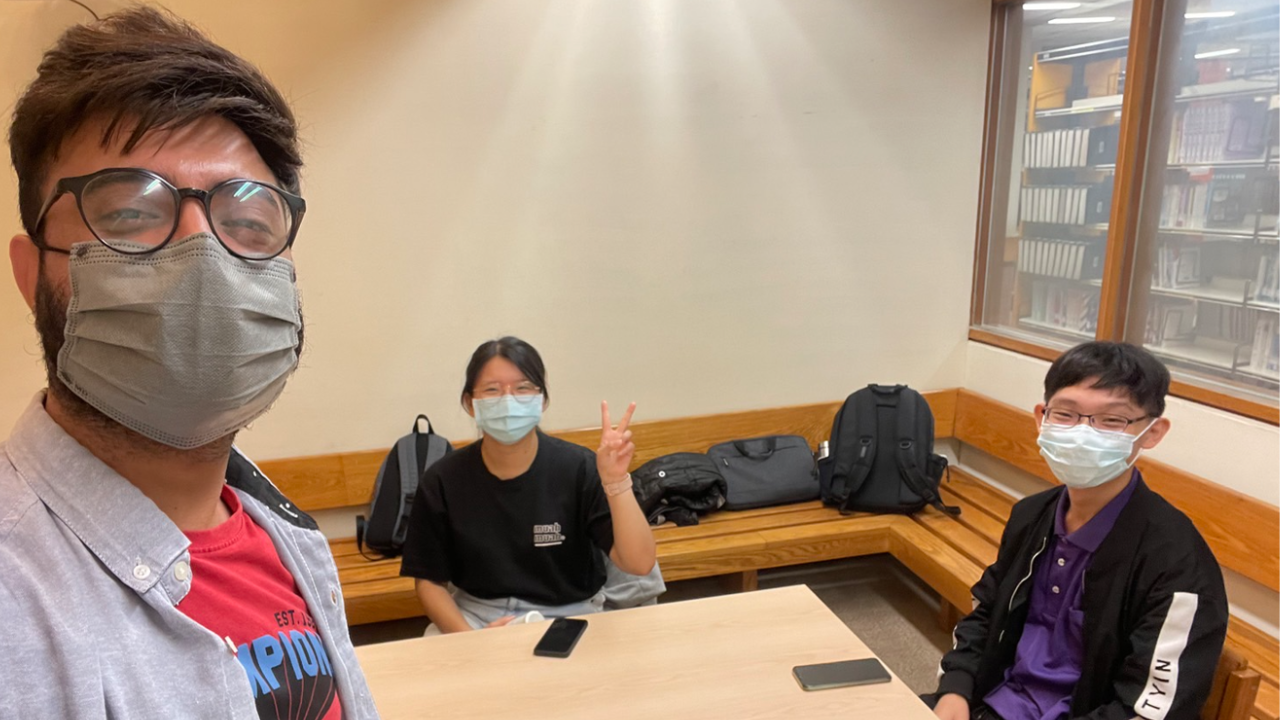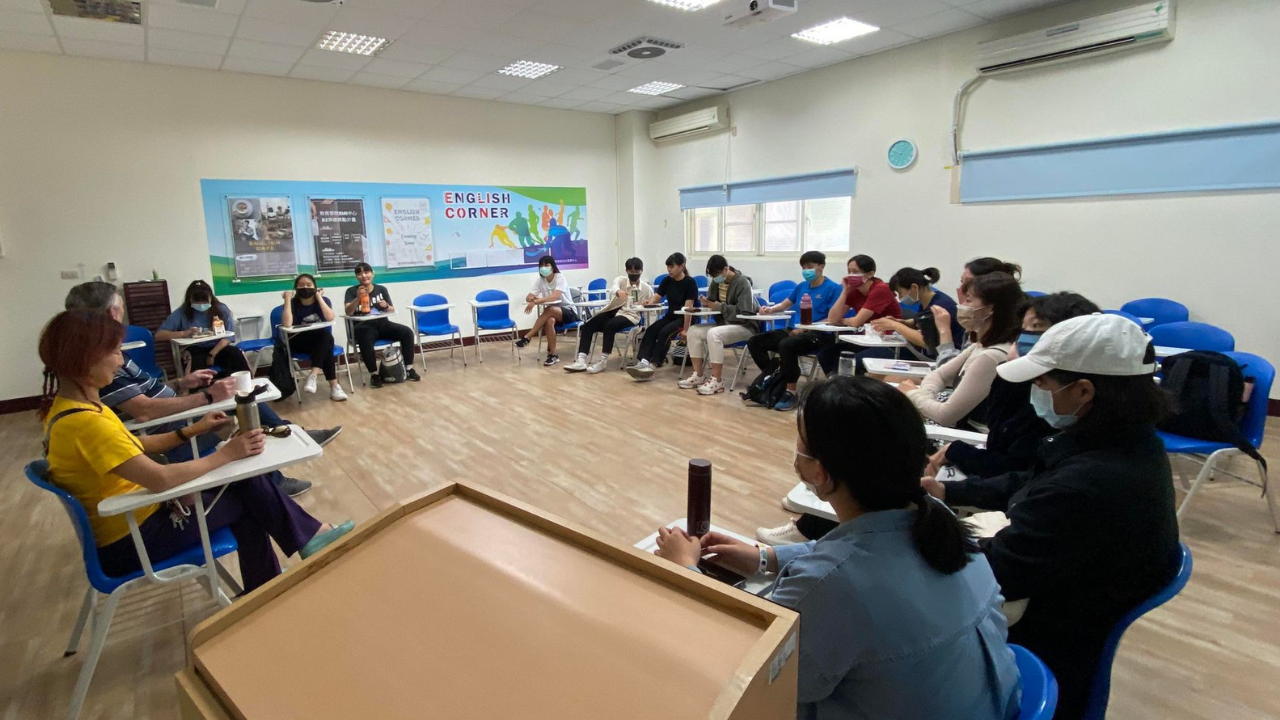Abstract
Summarized Implementation Report-EMI Resource Center, College of Education, National Chung Cheng University
- Institutional strategy and management: The university has established an institutional-level EMI office to organize EMI related affairs and to hold cross-college progress meetings every month during the academic year 2021-2022. The EMI Resource Centre of College of Education is the central institutional unit in implementing the EMI provision.
- Growth of EMI Provision: National Chung Cheng University developed additional EMI related projects: the EMI Project of Higher Education Sprout Project, EMI Teaching Development Project, and EMI Teaching Development workshops. In the 2020-2021 academic year, the College of Education had only 21 courses taught in English, however, in the academic year 2021-2022, we offered 40 courses, of which 17 were undergraduate and 23 were postgraduate (22.5% of the total courses offered). The overall increasing ratio of EMI courses offered by the College of Education compared with year 2020 and year 2021 is 1.38 time, while the increasing ratio in the undergraduate is 14.68 times. EMI Resource Center also held 6 workshops (mentoring) throughout the academic year, and 20.75% of the teachers of College of Education (53 in total) have participated. The EMI Resource Center also collaborated with University Academic Affairs to co-host 2 EMI teaching assistant workshops and has carried out multiple subsidies for professors who offered EMI courses.
- Teachers and Teaching: 23 EMI teachers had participated in the Cambridge EMI Skills course (22.5% out of 53). In addition to the 6 teacher's workshops we offered, we also collaborated with TWAEA to provide another 6 teacher's workshops. The College of Education also recruited 3 part-time EMI instructors to support the program, one of them is a British professor, Neil Muggleton, who teaches in the Department of Criminology. Aside from the classroom instruction, we also offered 5 online course modules in this academic year.
- Students and Learning: EMI Resource Center conducted English Café events throughout the academic year to enhance students' listening and speaking compression outside the classroom by hiring a native British instructor to host the activity 3 times a week, and the total number of participants was 371. To create a more English welcoming environment for students, signs and posts in English have been placed around the College of Education. We also provided English test, implemented language exchange program, provided career speeches and a summer English program. In accordance with the statistics provided by the Language Center, 9 sophomore students had met the CEFR B2 level, and 1 had met the C1 level. On the perspective of EMI Course taking rates. Even though only 1 student managed to achieve taking the targeted 20% EMI credits, 5% of the students achieving more than 15%, and 36% of the students achieving more than 10%, it's apparent that the increasing interest of students in taking EMI courses.
- Information for Students and the General Public: EMI Resource Center also established a Facebook page, YouTube Channel, and a website to publicize the regulations for the language test subsidies, seminars and workshops, course maps, regulations of course offering subsidy, and other EMI related information. The EMI Resource Center had held 2 advisory committee meetings and at the end of the academic year invited external experts and industry representatives, opened our Presentation of Results event to the public, and more than 100 people have joined. For websites, please see: https://reurl.cc/nOXdG2
- Quality Assurance: EMI college-level planning office had held 2 Stakeholder Meetings, 2 Advisory Committee Meetings, 6 Teacher’s Workshops, 1 Progress Report, 1 Presentation of Result, and 2 teaching opinion surveys. The University-level EMI planning office executed EMI Working Group Meeting once a month throughout the academic year. The EMI Resource Center also formulated the Terms of Reference of the EMI Advisory Committee, which included students, teachers, representatives from the industry and external experts. With regard to class observation, EMI Resource Center had conducted 15 out of the offered 40 (37.5%) courses. The Teachers' Workshops arranged by the EMI Resource Center are aiming to provide a platform for the EMI teachers, where the experienced teachers can be the mentor and share their experiences and tactics to help others to sharpen their pedagogies as well as to improve the teaching quality. The Center also held meetings regularly to gather opinions from the teachers' perspectives, students' perspectives and the administration's perspective to examine the learning effectiveness periodically and to modify the orientation of the execution of the EMI project and making quality assurance in practice. Minutes of the meetings please refer to: https://reurl.cc/MNDx2m
- Other Initiatives for Enhancement: The EMI Resource Center invited experts and all stakeholders in Taiwan to join our Presentation of Results at the end of academic year 2021-2022, pursuing the leading role of the nearby EMI Resource Center. The college of Education had provided activities, workshops, and courses to local professionals to facilitate the industrial employee engagement. The EMI Resource Center also offered 5 online course modules and English Café to the prospective students and developed language partnerships to reinforce a advanced EMI teaching and learning environment in the College of Education.
Table 1. Percentage of EMI courses of overall provision by level of study from 2020-2022
| College of Education in CCU | ||||
| Academic year | Level of study | EMI courses | Total of courses | % of EMI courses |
| 2020/2021 | Doctoral | 9 | 74 | 12.16% |
| Master's | 10 | 103 | 9.71% | |
| Undergraduate | 2 | 246 | 0.81% | |
| Total | 21 | 423 | 4.96% | |
| 2021/2022 | Doctoral | 12 | 82 | 14.63% |
| Master's | 14 | 94 | 14.89% | |
| Undergraduate | 17 | 248 | 11.89% | |
| Total | 43 | 424 | 6.85% | |
Table 2. Online Course Modules and EMI instructors recruited by Departments.
| ACE | DAS | CRM | |
| Online Course Modules Offered by Departments | 1 | 2 | 2 |
| Part-time EMI instructors recruited by Departments | 1 | 1 | 1 |
Table 3. Language proficiency of students of sophomore year
| CEFR level | % of domestic students | % of students from China, Hong Kong, & Macao | % of international students | |||
| Academic year | 20/21 | 21/22 | 20/21 | 21/22 | 20/21 | 21/22 |
| CEFR B2 | 16.6% | 9% | 50.0% | No Data | 18.2% | No Data |
| CEFR C1 or above | 0.9% | 1% | No Data | No Data | 0.00% | No Data |
Table 4. Percentage of students earning at least 20% of their credits from EMI courses
| CEFR level | % of domestic students | % of students from China, Hong Kong, & Macao | % of international students | |||
| Academic year | 20/21 | 21/22 | 20/21 | 21/22 | 20/21 | 21/22 |
| End of sophomore year | No Data | 1% | No Data | No Data | No Data | No Data |
| End of 1st year of Master's studies | 5.60% | 9% | No Data | No Data | 81.3% | No Data |

